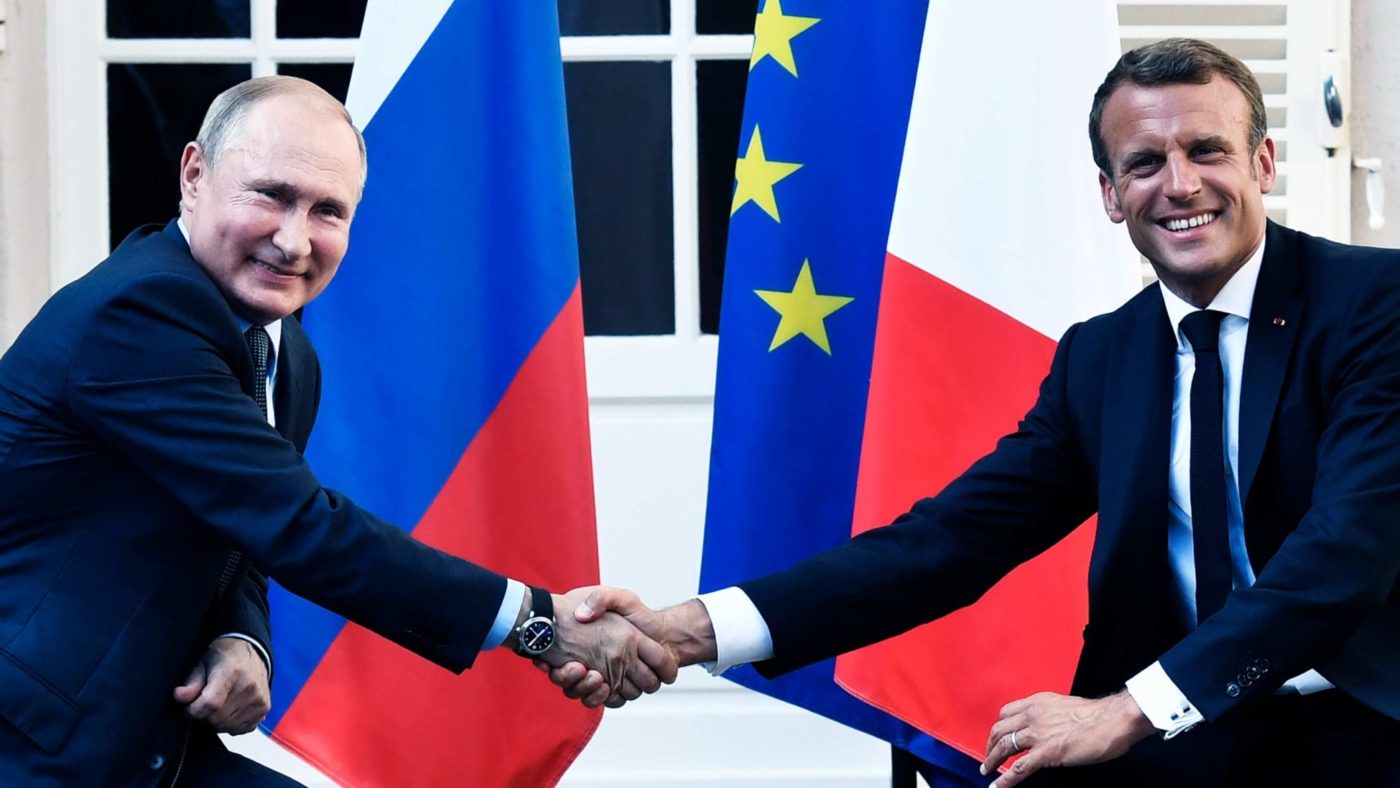Back in 2014, when the Obama administration imposed sanctions on Russia over its annexation of Crimea and aid to pro-Russian rebels in Eastern Ukraine, it anticipated that the resulting economic pressure would eventually force Moscow to stand down. Well, it’s late into 2019 and the opposite has happened. Now, it appears the West wants to play ball with Russia.
The Kremlin remains defiant that it will not budge on Crimea and it continues to back separatists in Eastern Ukraine, and Western leaders are increasingly less concerned about either. Only Washington is willing to punish Moscow — albeit with less intensity than before. Indeed, a growing number of European governments are breaking ranks with the United States over how to respond to a resurgent Russia, openly calling for cooperation with Moscow over containment.
European and even American investors have followed their lead, placing hefty amounts into Russian economic development — investments not seen since the start of the Ukraine Crisis, which convinced many foreign firms that doing business in Russia was too risky. After years of pressure, Russian markets are finally getting some reprieve.
Russian diplomats and analysts have described their country’s doctrine toward the West as “strategic patience”. This best describes how Russia is seeking to avoid escalating tensions or making concessions to the West. Instead, Moscow hopes the United States and Europe will become weary of confrontation, seeking detente with Russia on their own accord. And this strategy is starting to show signs of success.
One of the first signs of a thaw between Russia and the West came in June when the Parliamentary Assembly of the Council of Europe voted overwhelmingly to fully reinstate Russia’s membership, which had been suspended since the annexation of Crimea.
This readmission into the European human rights group was a significant moment for two reasons: first, Russia didn’t have to make any compromises to rejoin the council. Second, the initiative to readmit Russia into the council came from France and Germany — two countries that were once among Moscow’s most stringent opponents in Europe.
While countries like Hungary and Italy have long lobbied for an easing of tensions with Russia, the support for these efforts by two of Europe’s biggest powers represents a game-changer.
In 2014, France helped spearhead the West’s outcry at Russia’s actions in Crimea and Ukraine. But over the past two months, President Emmanuel Macron and his team have repeatedly argued that easing tensions with Russia is imperative for stability in Europe. Macron joined Trump in calling for Russia to be brought back into the G7, and even hosted Russian President Vladimir Putin at his villa on the French Riviera before the start of the summit. He described Russia as a “very deeply European country” and warned that pushing Moscow further away from the continent would be “profound strategic error”.
French Foreign Minister Jean-Yves Le Drian echoed his president’s sentiments when he visited Moscow on September 9, the first trip by a senior French minister to Russia since the annexation of Crimea.
“The time is right to work towards reducing the distrust between Russia and Europe, who ought to be partners on a strategic and economic level,” Le Drian said.
Paris’ overture to Moscow isn’t merely a call for friendship. The trade turnover between Russia and France reached $17 billion in 2018 — an 11% increase from the year before. In fact, French investments in Russia are currently valued at $20 billion.
And Germany isn’t any better. Yes, Angela Merkel government loudly calls for NATO to stand up to the Kremlin. But Berlin’s actual policy toward Russia is considerably softer than the chancellor’s rhetoric suggests. Despite the current sanctions regime, German businesses are rushing to sign lucrative deals with Moscow, even those that are likely to have negative geopolitical implications for Russia’s neighbors.
Last year, German firms invested $3.7 billion in Russia — the highest figure in a decade. At the same time, German companies are working with Russian state gas conglomerate Gazprom to construct Nord Stream 2, a 746-mile underwater pipeline that will deliver Russian natural gas directly to Europe, allowing Moscow to bypass traditional intermediaries such as Ukraine.
Merkel’s government has done little to discourage its business community from strengthening ties with Russia. On the contrary, Berlin is eagerly working to rebuild burned bridges with Moscow. At the St. Petersburg International Economic Forum in June, the Russian and German economic ministers signed a deal under which Berlin would seek to bolster the Russian economy’s efficiency by providing it with German technologies. The German government also announced in late September it would accept Russian passports that Moscow distributed to civilians in separatist Eastern Ukrainian territories — just months after denouncing the move as a violation of Ukraine’s sovereignty.
On the part of the U.K., Prime Minister Boris Johnson is no friend of the Kremlin, but that doesn’t mean London’s opposition to Moscow counts for much. While dealing with the chaos of the Brexit conundrum, the United Kingdom is unlikely to dedicate much energy to confronting Russia.
That leaves the United States.
Although Washington continues to regard Moscow as a major threat, its insistence on imposing tough new sanctions is fading. Last autumn, bipartisan groups of lawmakers on Capitol Hill introduced two new Russia sanctions packages. Neither project has gone anywhere since and is unlikely to do so anytime soon now that Congress is engulfed by the impeachment inquiry.
Five years of tensions with the West have cost Russia dearly. As Putin himself admitted, Western sanctions have played no small role in Russia’s current economic malaise. Nevertheless, they have also failed to harm Russia’s economy enough to make the Kremlin reconsider its foreign policy. Now that Western leaders are offering Moscow the olive branch, it appears that Putin’s strategic patience is about to pay off.
CapX depends on the generosity of its readers. If you value what we do, please consider making a donation.


